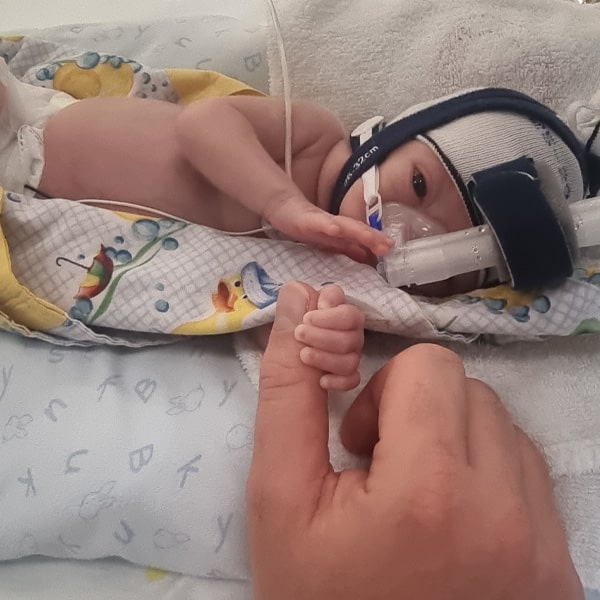Any new parent will tell you how overwhelming it can feel to suddenly be caring for a fragile new life. Now imagine that this life came into the world before it was ready – the fragility is magnified and with it the number of unknowns and things that can go wrong.
Hudson Institute and Monash University are a global leaders in research investigating the conditions that can affect preterm babies, with and at the forefront.
One of their primary areas of research is , a disease of the premature gut and the most common cause of death due to gastrointestinal health issues in infants.
NEC triggers massive inflammation, causing parts of the small and/or large intestines to die. Widespread infection and multi-organ failure often ensue. It is a looming spectre that strikes unpredictably in preterm babies.
Sophie and Nathan’s story: turning tragedy into determination
Sophie and Nathan Streeter had never heard of the disease until it struck their baby boy Charlie just eight weeks after his premature birth.
Three days and two surgeries later, Charlie passed away in his parents’ arms.
Through their devastation, this young couple determined to do whatever they could to create positive change; they reached out to Hudson Institute’s resident experts, hoping to create the two things they needed when they encountered NEC.
The first was information – providing the resources parents need in the hours and days after a diagnosis of NEC – to fill the exasperating vacuum that currently exists.
The second was more research – to fill another vacuum, namely the absence of safe and effective treatments for this devastating disease.
Sophie and Nathan were also kind enough to allow Hudson Institute to as part of the 2023 fundraising appeal. Their story has touched the hearts of everyone who’s watched it.







